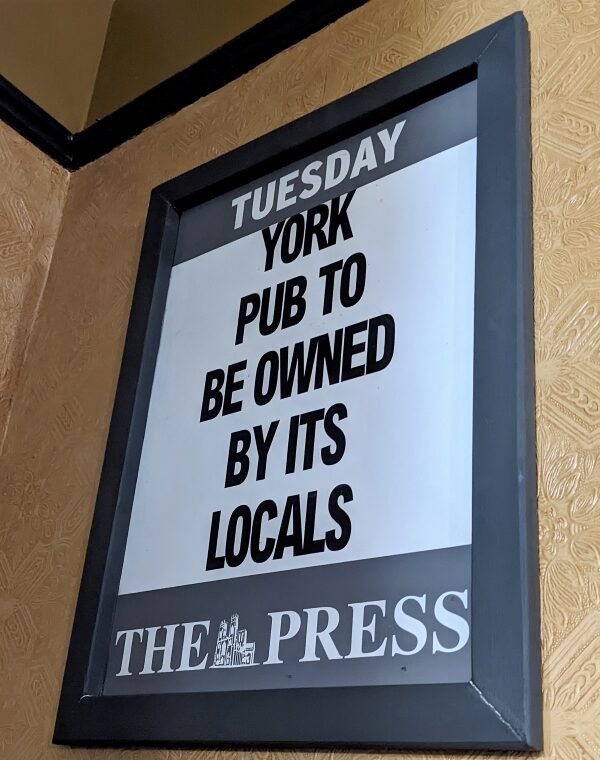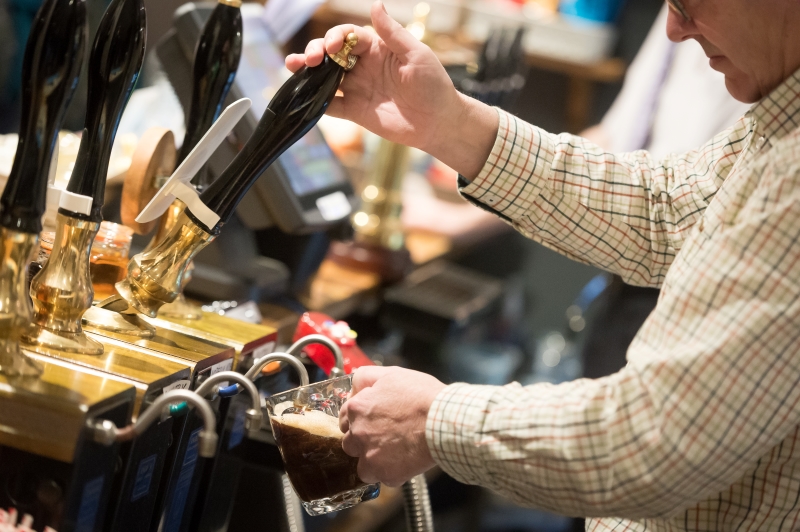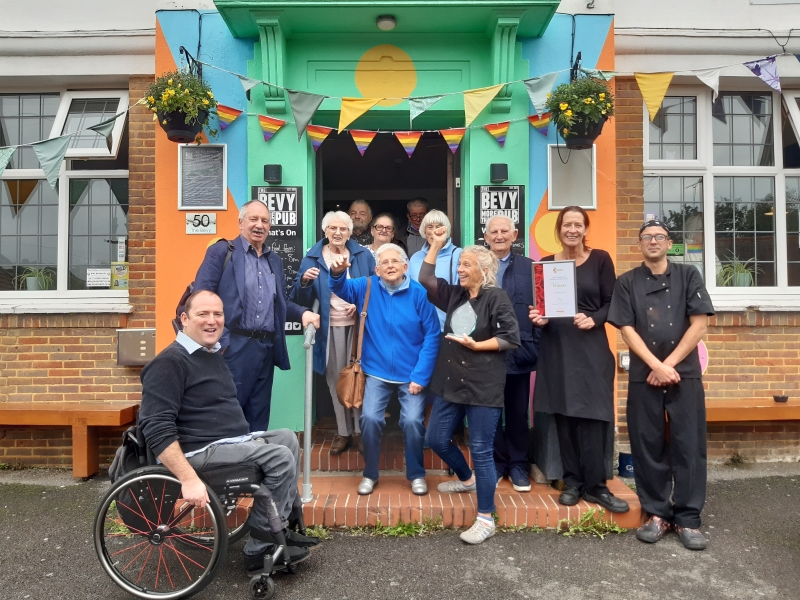The local and national media’s interest in pubs owned by local communities continues to increase – and it’s a good news story to tell amidst the continuing challenges facing the wider hospitality sector.
There’s a growing public interest in community-owned pubs right now. The year is only four months old, and, alongside high enquiry rates from communities wanting advice, we’ve already had a significant amount of contact from journalists wanting to write articles, and radio stations looking for our comment.
We have taken calls from the world of TV too, most notably the BBC Countryfile team, who featured the community in Loddiswell, Devon who are seeking to buy their village pub, which aired in February.
With Plunkett’s CEO, James Alcock, also interviewed for the piece, and it has helped to raise the profile of what we can offer communities looking at taking on ownership of a local asset.
As a UK-wide, membership organisation we are well placed to know what community pubs are offering to their locale, how they are inclusive, and which of them have interesting stories to tell.
We don’t get involved in all media coverage and it’s been encouraging to monitor the dozens of stories shared each week in locally and nationally, with a high proportion being accompanied with headlines such as ‘Community Raises Thousands To Save Their Local Pub’.
Community-owned pubs in the media

Expanding and thriving
The fact is the community pubs movement is expanding and thriving. Plunkett’s data shows there are currently 182 community-owned pubs countrywide, and that 16 new ones opened in 2023. These businesses are also creating opportunities for local people. On average, a community pub employs 10-11 people and have 23 volunteers helping on a regular basis.
Community pubs operate on a democratic basis, ensuring local residents have a genuine say in how the business is run. Almost half of community pubs have over 200 shareholders and we estimate that over 37,500 people have become shareholders in community pubs to date, raising over £35 million between them through community shares.
In addition, communities might take advantage of grant funding – for example, the Government’s Community Ownership Fund (of which Plunkett is a support delivery partner) – as well as repayable finance from social investors, crowdfunding or traditional fundraising activities.
The national picture for pubs
The community-owned model for pubs is flourishing, and this bucks the trend for national picture for all types of pubs.
According to a report by the Campaign for Real Ale in February, some 194 pubs were lost to conversion or demolition last year. Research by the British Beer and Pub Association shows 509 pubs closed their doors in 2023, equating to a loss of more than 6,000 jobs, and that the UK has lost 6% of its pubs in the last six years.
Price Bailey states pub closures were at their highest total level for more than a decade, with a convergence of adverse factors to blame such as high energy, labour and food costs, as well as diminished disposal income for pub-goers amid the cost-of-living crisis.


A model that works
Claire Spendley, Plunkett UK’s Head of Community Business, says, “Community-owned pubs remain the fastest growing type of community business Plunkett works with, and this could be because commercial pubs are closing rapidly.
“Community ownership isn’t the answer everywhere, but in rural communities in particular – where there may be a lack of transport infrastructure, and limited access to services and amenities in the local community – they have proved to be a model that works.”
‘More than a pub’
Plunkett describes community-owned pubs as ‘more than a pub’ because they’re providing a wider range of services and amenities than just running a hospitality business.
They become a hive of community and voluntary activity, offering space for meetings, clubs and societies; promoting live music, arts, events and sports; looking out for vulnerable residents in their local community; and supporting the local economy by investing profits in and fundraising for other local projects.
A sustainable form of business
Claire says, “Community ownership is proving to be an extremely sustainable form of business. All types of community-owned businesses have a 92% long-term survival rate. This is testament to the dedication of the elected volunteers who form a management committee and give their time to keep their local pub running.
“Such a proactive approach to tackling issues, diversifying services, and adapting to meet the needs of their local communities has enabled community-owned pubs to continue to thrive.”
How can we support you?
Plunkett UK answers enquiries every day from people across the country who are exploring the idea of setting up a community business, as well as from existing businesses who need additional support. We provide specialist business advice, training, webinars and toolkits. We also raise awareness of the community business model through proactive press, media and campaigns, research, and advocating with government, think tanks and funders.
Our Keep it in the Community database lists all known Assets of Community Value from across England – is yours there?
Get in touch with us for advice and support by clicking the link below.





